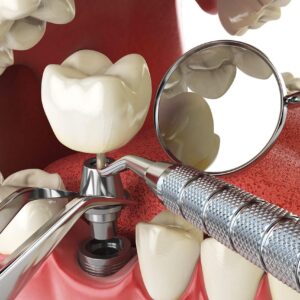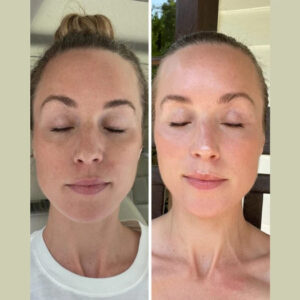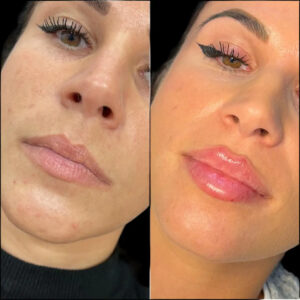Over the past decade, technology has completely transformed healthcare. From digital prescriptions to remote consultations, the way people receive care is no longer tied to hospitals or clinics. One of the most significant shifts has been in diagnostic testing. What once required long waits, lab visits, and physical paperwork can now be done with a few clicks, often from the comfort of home. Technology hasn’t just made medical testing faster—it’s made it more accessible, more accurate, and more personal than ever before.
The Rise of Digital Health Platforms
Before the digital revolution, getting a medical test meant visiting a clinic, waiting in line, and sometimes traveling long distances. Now, digital health platforms are bridging that gap between patients and diagnostic services. These platforms allow users to book tests online, choose sample collection times, and even track their results through mobile apps. The entire process is designed around convenience.
For patients, this means no more scheduling conflicts or unnecessary delays. For healthcare providers, it allows better data management, reduced paperwork, and real-time communication with labs. The result is a smoother experience for both sides, powered by technology that connects everything behind the scenes—from logistics to data sharing.
Portable Testing Devices and Smart Kits
Another major change is the rise of portable testing devices. These are compact, user-friendly tools that can analyze blood, saliva, or swab samples with minimal supervision. Many of these devices are now equipped with Bluetooth or Wi-Fi capabilities, which send data directly to mobile apps or cloud-based systems.
For example, diabetic patients can use continuous glucose monitors that automatically record blood sugar levels and share them with their doctors in real time. Similarly, heart patients can use wearable ECG monitors that detect irregularities and alert both the user and healthcare providers. These technologies make it possible to monitor chronic conditions without constant clinic visits, allowing early intervention and improved outcomes.
Home test kits have also evolved. Modern kits now include clear instructions, pre-sterilized equipment, and secure packaging for easy return to labs. Whether it’s a routine blood test or a specialized diagnostic procedure, technology has simplified the process to fit seamlessly into daily life.
Artificial Intelligence in Diagnostics
Artificial Intelligence (AI) has become a driving force in modern diagnostics. AI systems can analyze vast amounts of medical data—images, reports, and test results—faster than any human. They’re being used to detect conditions like cancer, diabetes, and heart disease with remarkable precision.
For instance, AI-powered algorithms can examine X-rays and CT scans, identifying subtle signs of disease that might go unnoticed. In pathology, machine learning tools assist in reading slides and detecting cellular abnormalities, reducing the margin of human error.
What’s truly transformative is that AI doesn’t just analyze—it learns. The more data it processes, the more accurate it becomes. This self-improving nature means diagnostic accuracy continues to rise over time, offering earlier and more reliable detection of diseases.
Telemedicine and Remote Testing
The COVID-19 pandemic accelerated the growth of telemedicine, but its influence extends far beyond online consultations. Telemedicine platforms now integrate diagnostic services, allowing doctors to recommend tests, schedule home collections, and review results remotely. Patients no longer need to step out unless absolutely necessary.
Remote testing is especially beneficial for the elderly, people with mobility issues, or those living in remote areas. It’s also popular among working professionals who prefer flexible health services. With secure digital platforms, medical data can be shared instantly between labs, doctors, and patients—eliminating the need for physical reports or repeated follow-ups.
An example of how technology has adapted to modern healthcare needs can be seen in pcr at home dubai services. These on-demand diagnostic solutions allow individuals to book PCR tests online and have certified professionals visit their homes for sample collection. It’s a perfect example of how convenience, speed, and reliability come together through technology to meet public health needs efficiently.
Data Security and Privacy in Digital Health
As medical testing becomes more digital, one concern stands out: data security. Patients trust healthcare providers with sensitive personal information, and any breach can have serious consequences. Fortunately, advancements in cybersecurity and encryption technology have made it possible to store and transmit data safely.
Most reputable diagnostic platforms now comply with global privacy standards such as HIPAA and GDPR. They use secure servers, two-factor authentication, and encrypted data transfers to ensure patient confidentiality. Blockchain technology is also emerging as a solution, creating tamper-proof digital records that can be accessed only with permission.
While no system is entirely immune to threats, the healthcare industry is investing heavily in protection measures. The goal is to balance the accessibility of digital health with the security patients deserve.
Faster Results and Real-Time Updates
Speed is another area where technology has revolutionized medical testing. In the past, patients often waited days or even weeks for results. Now, automated systems can process tests in a fraction of the time. Many labs use robotic analyzers that work around the clock with minimal human intervention, increasing efficiency and reducing the chance of errors.
Digital dashboards provide real-time updates, allowing patients to see when samples are received, processed, and ready for viewing. Notifications and result summaries are sent directly to smartphones, making it easier for people to take timely action based on their results.
Doctors also benefit from this speed. Faster test results mean quicker diagnoses, more effective treatments, and better patient outcomes. It’s a win-win situation powered by intelligent technology.
Integration with Wearable Health Devices
Wearables are no longer just fitness gadgets. Devices like smartwatches and health trackers now collect valuable biometric data such as heart rate, blood oxygen levels, sleep patterns, and even stress indicators. When integrated with diagnostic apps, these readings help create a continuous health record that complements traditional medical tests.
This integration allows doctors to track patient progress between visits and identify warning signs before a condition worsens. For example, irregular heart rhythms detected by a smartwatch can prompt a patient to undergo further testing or seek immediate care.
Over time, this combination of wearables and diagnostics forms a holistic picture of one’s health—data-driven, personalized, and proactive.
Accessibility and Inclusivity
Technology is also making diagnostics more inclusive. Mobile labs, telehealth vans, and community testing programs are reaching rural and underserved populations that once had limited access to healthcare. With internet-based platforms, people in remote areas can book tests, consult doctors, and receive results without leaving their community.
Language translation features, voice commands, and intuitive app designs are breaking barriers for elderly patients and those less familiar with technology. These tools make it possible for more people to participate in their own healthcare without feeling overwhelmed.
The Future of Diagnostic Testing
Looking ahead, medical testing will become even more integrated into daily life. We can expect at-home diagnostic devices that connect directly to virtual healthcare systems, predicting illnesses before symptoms appear. Genetic testing and personalized medicine will also expand, offering treatments tailored to individual DNA profiles.
Artificial Intelligence will play an even greater role, not just in detecting diseases but also in forecasting them. By analyzing patterns from millions of anonymized health records, AI could predict outbreaks, detect early signs of chronic conditions, and recommend preventive measures before issues escalate.
The boundary between clinical settings and personal spaces will continue to blur, creating a healthcare model that’s flexible, fast, and highly connected.
Conclusion
Technology has completely reshaped how we approach medical testing. What once required physical presence, manual paperwork, and long waiting times can now happen effortlessly through digital platforms and smart devices. From AI-powered analysis to doorstep sample collection, every advancement points toward one goal: making healthcare more convenient and responsive.
As innovation continues, patients will gain even more control over their health. The next generation of diagnostic technology will not only detect diseases earlier but also empower people to stay healthier, longer. It’s a future where testing is not just a procedure—it’s part of an ongoing, intelligent conversation between you, your body, and technology.




